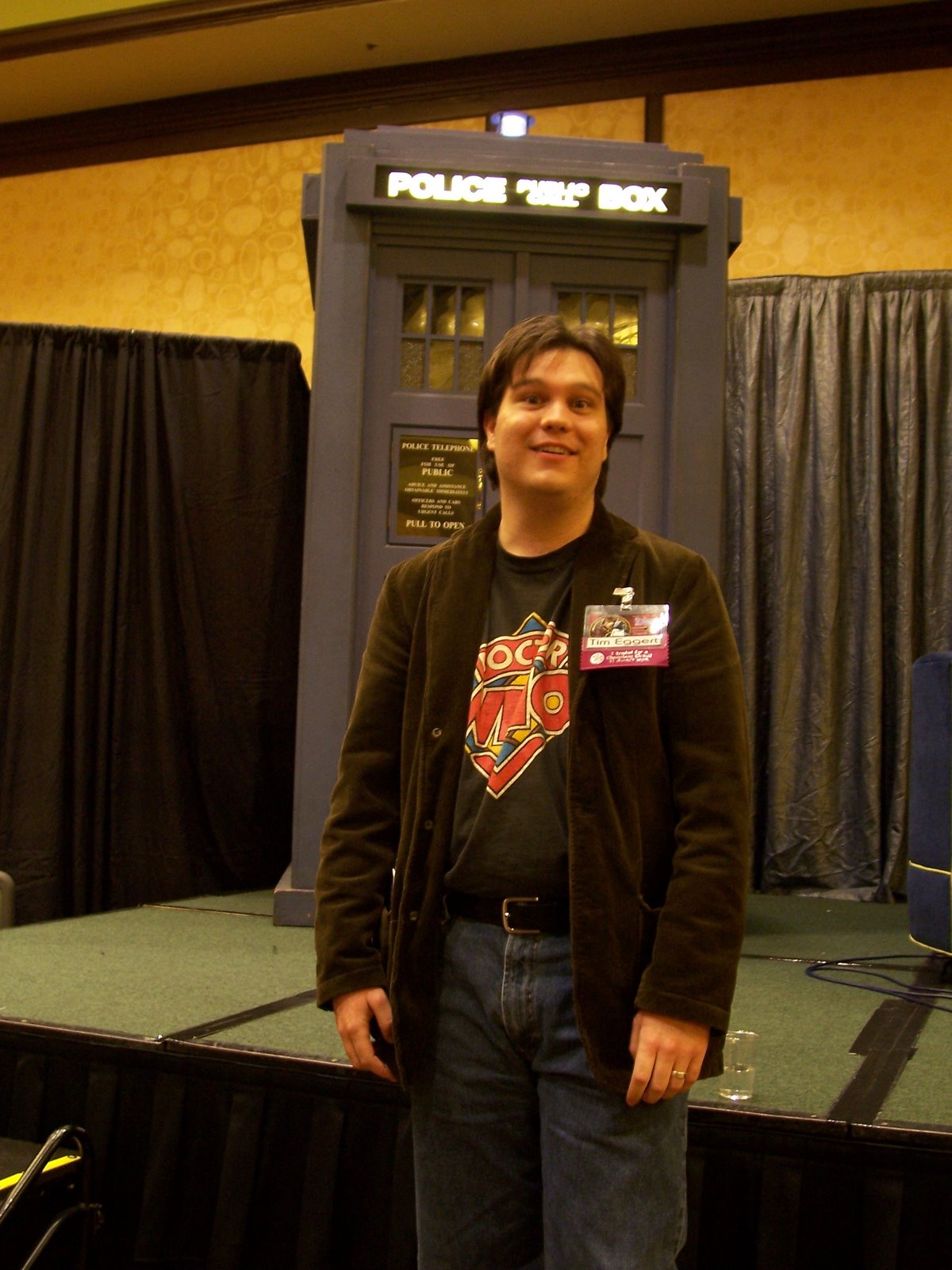Our unwilling explorers come out of the forest, only to the find the
Geico neanderthals waiting for them. The cavemen stand around menacingly, as if auditioning for a new
ABC sitcom.
As Kal implicates Za in the old woman’s death, the Doctor outwits him (easily... as if there could be any other way) in a battle over evidence. Cornered, Kal admits he killed the Old Woman, in what is apparently planet Earth’s first courtroom drama. I felt this probably the strongest scene in the episode, and it comes unfortunately early. Under the Doctor, Ian, and Za’s leadership, the tribe drives Kal out. Sadly, however, the TARDIS crew fails to use this opportunity to slip out quietly, and their assistance in Za’s credibility problem is repaid by further captivity.
The Doctor refers to the Cave of Skulls as being “evil,” the first time something is given this label in the series.
Hur recaps the previous episode’s events, telling Za how the man called Friend (Ian) and his companions cared for Za’s wounds like a mother for child. As Za gives the time-travelers his ultimatum – make fire or die at the hands of the tribe - Ian tells him that in his tribe, making fire is not all that important. Ian defers to the Doctor as leader. However, their conversation is interrupted by Kal’s return. Za fights him to the death, apparently in another studio. As much as I didn’t enjoy seeing Kal and Za’s rather anachronistic underwear, I’m thankful it was there.
Meanwhile, in the sleeping cave, Will Ferrell's caveman stunt double tries to convince the tribe that Za is taking too long with the fire. Za manages to kill Kal about the same time that Ian kindles a flame. Suddenly, Za is able to show off a torch to the rest of the tribe, and
Will Ferrell recounts how the meat and fire tasted together. Flame-broiled
Whoppers can only a few years away now!
Although Za got what he wanted, he still keeps the TARDIS crew imprisoned, suggesting that he wants to annex their tribe. No one’s interested in helping further, as every bit of assistance up to this point has been met with incarceration. Luckily, Susan has seen
Live and Let Die, and the group come up with a plan to scare the tribe enough to distract them as they escape.
The time-travelers run in place, as technicians out of frame hit them with the branches of tropical plants. They get through the forest and enter the TARDIS quickly. They dematerialize as the tribe’s spears miss their mark. For the first time, Za looks just as baffled as anyone from the twentieth century might be at the disappearance of the TARDIS.
(“The first faint glimmerings…”)Inside, the crew bickers about getting back home. The Doctor mutters, “You know I can’t do that.” He waffles about not having enough time upon their previous hurried departure to make proper notes. However, it seems to Ian and Barbara (and the audience) that he can’t really control the TARDIS at all. They land somewhere very obviously not 1963 London, and Susan takes her premature radiation count…
Next episode: The Dead Planet 






